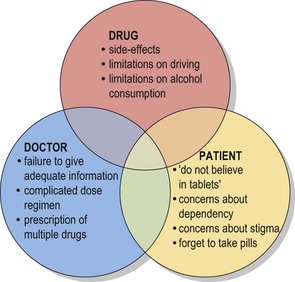Prescribing psychotropic drugs
Adherence to medication
Adherence with psychotropic drugs is known to be poor (Fig. 1). Up to half of all patients on prescribed medication for chronic conditions do not take the medication as prescribed. Many patients fail to take the drug at all; others take it at a lower dose or for a shorter period than recommended.
< div class='tao-gold-member'>
Only gold members can continue reading. Log In or Register to continue
Stay updated, free articles. Join our Telegram channel

Full access? Get Clinical Tree



